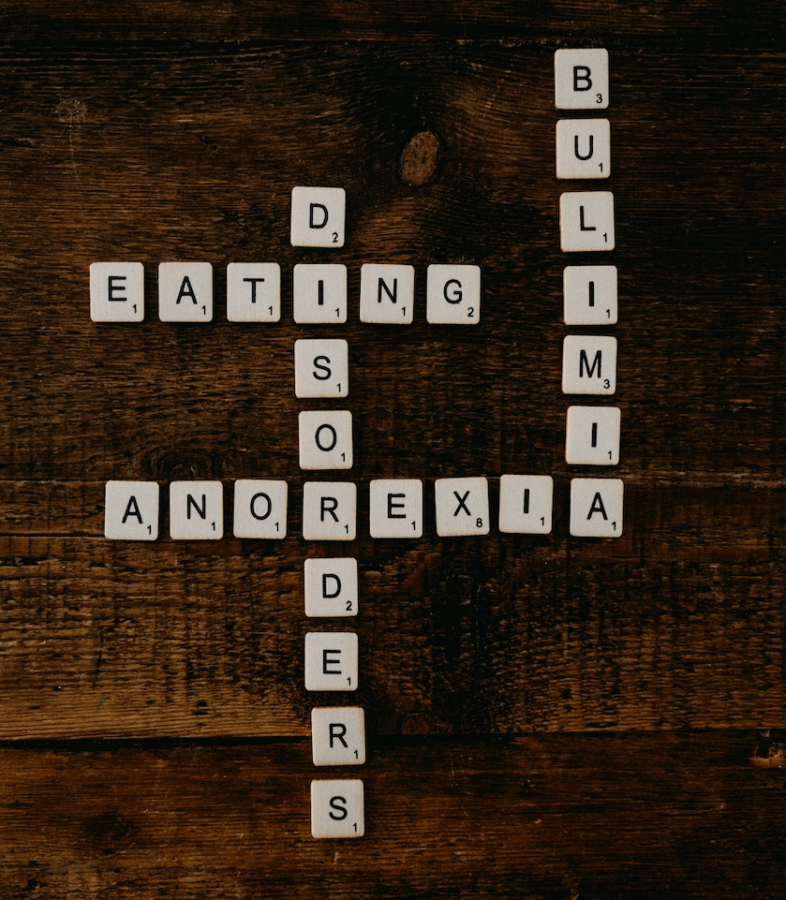Eating Disorders: What you really need to know
September 29, 2021
Eating disorders are a disease damaging the lives of many, but only acknowledged in the lives of some. Whether this be misinformation, or lack of any information, stigmas, stereotypes and lack of resources can be harmful when it comes to the concept of eating disorders.
Some students have a very specific idea of what it means for them to hear the phrase “eating disorders.”
“I think of disorders like bulimia, binge eating and anorexia,” freshman in mechanical engineering, Cole Nowakowski said. “I either think of very skinny, enough to see almost the entire skeletal structure, or very large people. I think women come to mind the most, however I am fully aware that eating disorders can happen to anyone.”
This stereotype of eating disorders only occurring in women, or mostly occurring in women, is a common issue with both awareness and treatment availability. This is a concept emphasized in an article on the Recovery Centers of America website, titled, “Breaking Stereotypes: Eating Disorders Don’t Discriminate.”
“Pop culture and media messages have led some to believe eating disorders are a female issue, but the reality is that about one in three people struggling with an eating disorder is male and some eating disorders are nearly as common among men as they are among women,” the article said. “Binge eating, purging, laxative abuse and fasting for weight loss are among the top male disordered eating behaviors, and what drives them is not too dissimilar from what drives women to disordered eating behaviors.”
Other students, when thinking about the term eating disorders, first think about a more broad concept of what causes the issue as a whole.
“…people not eating enough or not treating their body right because of society’s standards because they think they need to look a certain way, because they’re being told they need to look a certain way,” sophomore in marketing, Kaylin Klomhaus said.
Nowakowski took it even further to discuss what exactly is helping set those societal standards.
“I think of social media, leading to people with unrealistic expectations, same thing that causes people to use steroids when it comes to weight lifting,” Nowakowski said.
The same article from Recovery Centers of America confirms these students’ thoughts on eating disorders being worsened by societal standards within mass media.
“Males have been told by mass media that the ideal body type is lean and muscular, that successful, happy men must have a certain physique,” the article said. “In addition, men have been sexually objectified just like women which can lead some to obsess over muscularity and body weight, otherwise known as muscle dysmorphia.
Students like Nowakowski recognize that social media and mass media aren’t always to blame.
“I believe that most people view eating disorders as a problem that is caused solely by unrealistic expectations, negating the fact that a lot can be caused by family members and people that they are close to,” Nowakowski said. “Small comments about someone’s figure can add up overtime, leading to them developing an eating disorder.”
Overall, students like Klomhaus believe there is a definite lack of information among the general public when it comes to eating disorders.
“I think there’s definitely a lot of misinformation because I feel like it also goes the other way with binge eating, like there’s also eating too much or just the complete opposite way and I feel like that’s not talked about as much,” Klomhaus said. “It’s also normalized way too much.”
The article from Recovery Centers of America emphasizes just how important it is that we change that dynamic of misinformation or lack of information, especially the gender stereotype previously mentioned.
“In fact, eating disorders have the highest mortality rate of any mental illness and studies suggest that the risk of mortality for males with eating disorders is higher than it is for females,” the article said.
If you or someone you know may be suffering from an eating disorder, Iowa State lists various on and off campus resource options here, such as on campus therapy and dietetic services.







